Leaving your business behind is one of the biggest decisions you’ll ever make, and 2025 could be the perfect time. Economic forecasts hint at a seller’s market driven by retiring baby boomers and steady buyer demand. But success isn’t something you can rush. A well-thought-out exit strategy ensures you’ll sell your business on your terms and maximize its value. If you’re unsure where to start, exploring options and creating a plan tailored to your goals is crucial. For a helpful guide, check out Exit Strategies for Small Businesses.
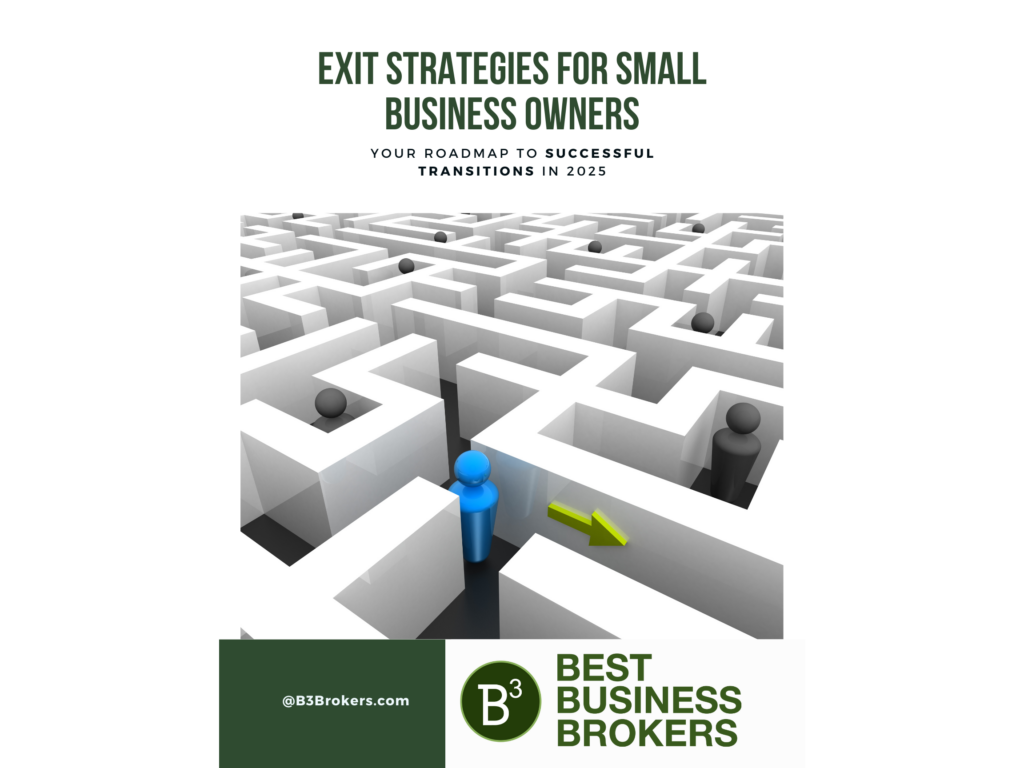
Why 2025 Is the Ideal Year to Exit Your Business
Timing is everything when exiting a business, and 2025 is shaping up to be an ideal moment. A combination of favorable economic conditions, demographic shifts, and market trends is creating a sweet spot for sellers. Let’s break it down.
Economic Trends Favoring Business Sales
As we approach 2025, the U.S. economy is projected to maintain steady growth, setting the stage for increased buyer confidence. This is good news if you’re considering selling your business. Factors like low interest rates are making it easier for buyers to secure financing, ensuring a large pool of qualified potential buyers. Combine this with robust buyer demand, and it’s clear that the market is leaning in favor of sellers.
For small businesses, this opens up doors to attract not just individual buyers but investment groups willing to pay a premium for proven-performing businesses.
If you’re thinking about making a move, a key question to ask yourself is: Are you positioned to make the most of these market trends? For tips on ensuring your business is ready to sell, explore Why Business Brokerage Professionals Use Term Sheets.
The Impact of Baby Boomer Retirements
Retirements are skyrocketing as baby boomers leave the workforce—especially those heading businesses. This means that thousands of small and medium-sized businesses are coming onto the market. What does this do? It drives up competition amongst buyers. Investors are keen on acquiring businesses with solid performance metrics because they’re rushing to catch opportunities created by this demographic shift.
If you’re gearing up to sell, you’re not alone, but that’s not a bad thing. Increased buyer competition works in your favor, particularly if your business is well-positioned in its industry. Make sure your company stands out by being organized and proactive. Looking for guidance? Here’s how different buyers might approach purchasing your business, which can help you prepare to meet their expectations head-on.
Evolving Market Dynamics
Buyer preferences have evolved dramatically in the past few years, and they will continue to do so. Instead of focusing solely on flashy, high-growth companies, buyers are recalibrating towards sustainable, recession-proof ventures. Additionally, updates in valuation trends mean businesses with recurring revenue streams and a strong customer base are commanding better prices. This change puts well-run small businesses in a strong position to attract competitive offers.
To stay ahead, tweak your exit strategy in 2025 to align with these market shifts. If you haven’t reviewed your plan lately, this guide on spending Q4 updating your business exit strategy for 2025 might be especially useful.
The combination of these economic trends, demographic shifts, and market preferences makes 2025 a rare window of opportunity for business owners ready to move forward. Taking proactive steps now could set you up for an incredible deal in the near future.
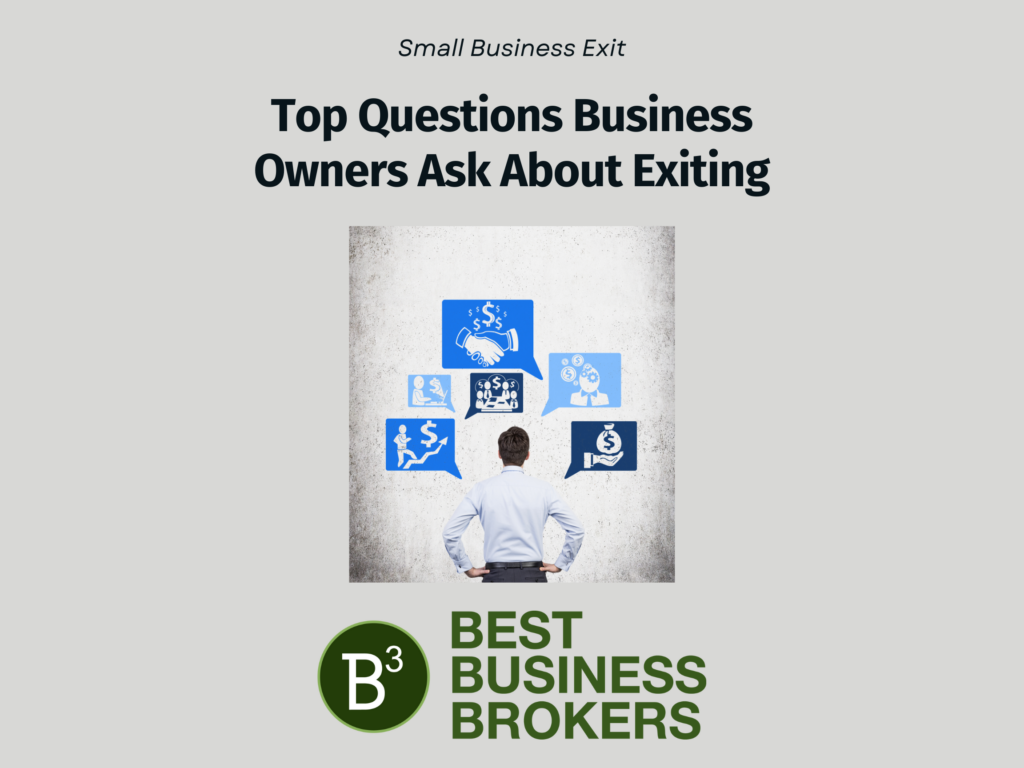
Top Questions Business Owners Ask About Exiting
Selling a small business isn’t just signing papers and cashing checks—it’s an intricate process that touches your finances, your employees, and your emotions. If you’re considering an exit strategy, let’s address some common questions to give you the clarity you need for this monumental step.
What Is My Business Really Worth?
Valuating your business is like piecing together a puzzle. Your company’s value isn’t just about profits; it’s a combination of tangible assets, future potential, and industry benchmarks. Here’s what you need to know:
- Valuation Methods
Common approaches include asset-based valuation, which focuses on total net assets, and the earnings multiplier method, which factors in profitability. The Discounted Cash Flow (DCF) analysis adds up expected future earnings, discounted to today’s value for a precise projection. - Key Influencers on Value
Factors such as market conditions, customer diversification, and even your company’s dependence on you (the owner) can make a significant difference. For high-performing examples with strong organizational balance, check out Maximize the Value of Your Business.
Need practical models? Explore 6 Methods for Business Valuation to dive deeper into calculation techniques.
How to Find the Right Buyer
Not all buyers are created equal. The right buyer ensures your legacy, employees, and financial interests remain intact. So, how do you know who’s “right”?
- Use Your Network
Sometimes the buyer is closer than you think. Professional connections and past collaborators might already have an eye on your business. - Hire a Broker
Business brokers streamline the process, vetting qualified buyers and maintaining confidentiality. A professional keeps the focus on serious offers. - Market Strategically
Implementing both online and offline strategies can attract the most ideal buyer profiles. Curious about where to start? Learn insights on how you can find the ideal buyer for your business.
Want to go beyond? Check out this Forbes guide that offers five strategic ways to approach this important step.
Ensuring a Smooth Transition for Employees
Selling your business isn’t just about breaking even—it’s about continuity for the people who helped you get this far. Employees often fear job insecurity after a sale, so how can you ensure a seamless process?
- Transparent Communication
Share your plans when it’s appropriate, but offer support or incentives that provide peace of mind. - Lay the Groundwork
A solid transition plan, including key documentation and introducing the new owner, reduces confusion and tension. For steps, read what’s next for teams in Navigating Employee Impact When Selling Your Business. - Consider Their Roles
Whether staff roles remain the same or new opportunities arise post-sale, including them in conversations helps build trust.
As highlighted in Is It the Perfect Time to Sell Your Small Business?, involving a trusted advisor can clarify the transition process.
Selling your business is a significant step in your professional journey. Answering these pressing questions lays the groundwork for a confident leap forward. Let’s keep building your exit strategy.
Steps to Maximize Business Value Before Selling
Preparing your small business for a sale isn’t something you can leave to chance. Maximizing its value not only helps you secure the best deal but also ensures the long-term success and sustainability of your enterprise under new ownership. Let’s explore key steps to make your business more attractive to potential buyers.
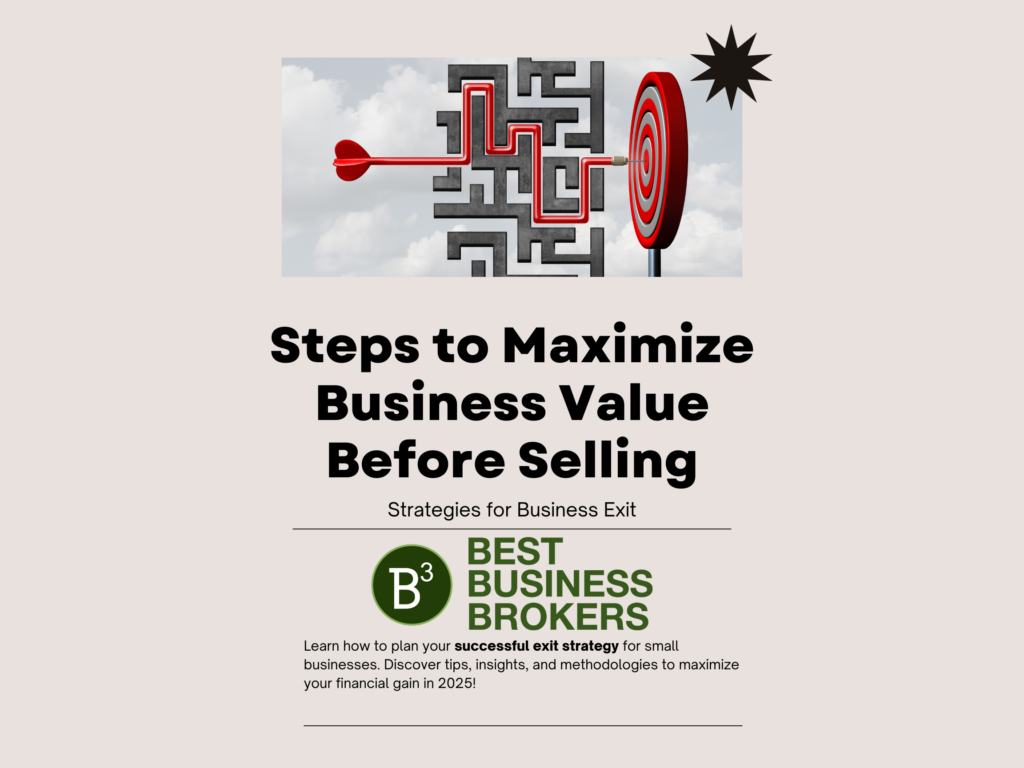
Streamlining Operations
Efficiency in operations is a cornerstone of increasing business value. Redundant processes and bottlenecks can significantly reduce a company’s appeal to buyers. Buyers want a business they can operate smoothly from day one, not one marred with inefficiencies.
Here’s what you can do:
- Invest in Technology: Automate repetitive tasks with software tools designed for your industry.
- Identify Redundancies: Audit workflows and remove overlapping or unnecessary processes.
- Organize Workspaces: Whether it’s a cluttered warehouse or a messy digital filing system, declutter and categorize.
Streamlined operations reduce operational expenses, increasing profitability—an attribute every buyer seeks. To learn more about boosting operational productivity, check out essential tips for selling your business.
Financial Clean-Up and Documentation
Your financial records are the first thing any potential buyer will scrutinize. Accurate, clean, and well-organized financial documentation reassures buyers that your business is transparent and financially stable.
Take these steps before listing your business:
- Reconcile Accounts: Ensure all accounts and taxes are up to date.
- Separate Personal and Business Finances: Make sure personal funding or expenses aren’t mixed with company accounts.
- Prepare Forecasts: Buyers value businesses with clear financial projections, reflecting future earnings potential.
Transparent books inspire buyer confidence and may lead to better offers. For in-depth knowledge, see the top strategies for boosting your business’s value.
Building a Self-Sufficient Management Team
A business overly dependent on its owner is a red flag for most buyers. Creating a robust management team can demonstrate that your business will thrive even in your absence.
Here’s why this matters:
- Scalability: A capable team suggests the business can scale, which appeals to growth-oriented buyers.
- Reduced Risk: Buyers see less risk in acquiring a company with operational autonomy.
Set clear roles for team members and encourage leadership development within your organization. A strong team isn’t just appealing—it’s often invaluable. Looking to more ways to leverage your team’s strengths? Check out Why 2025 Is the Perfect Opportunity to Buy or Sell a Business.
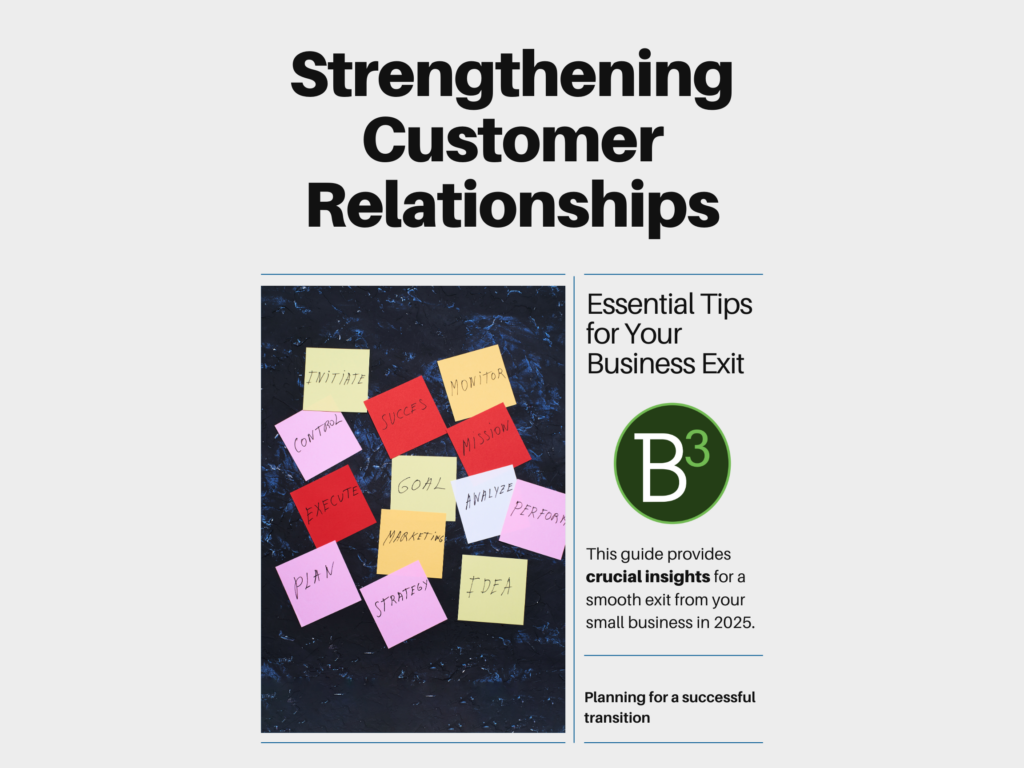
Strengthening Customer Relationships
Loyal customers create predictable revenue, and nothing is more appealing to potential buyers than recurring income streams. Businesses with strong customer loyalty sell faster and often at higher valuations.
Focus on:
- Retention Programs: Enforce loyalty programs to increase repeat purchases.
- Gathering Reviews: Positive testimonials from happy clients can sometimes seal the deal for buyers.
- Proactive Communication: Stay in touch with customers through newsletters or personalized campaigns.
Buyers often evaluate customer bases to determine long-term sustainability. For further insight on enhancing business longevity, explore 11 ways to maximize business value.
By implementing these strategies, you can ensure your business becomes a more appealing option for prospective buyers. Continue improving, and success will follow as you take the next step in your entrepreneurial journey.
Real Talk About Timing
Timing is everything. Starting your exit planning 18-24 months before your target sale date isn’t just smart – it’s essential. That’s why considering your options now for a 2025 sale puts you in the sweet spot.
The Secret Sauce: Professional Guidance
Listen, I’ve seen too many business owners try to go it alone and leave money on the table. It’s like trying to perform your own dental work – technically possible, but why would you?
At B3 Brokers, we’ve been helping business owners throughout Georgia and the Southeast navigate successful exits since 2009. Our team knows every bump in the road and how to avoid them.
Next Steps for Success
1. Schedule a confidential consultation
2. Get a professional business valuation
3. Develop your exit timeline
4. Start implementing value-building strategies
5. Position your business for maximum appeal
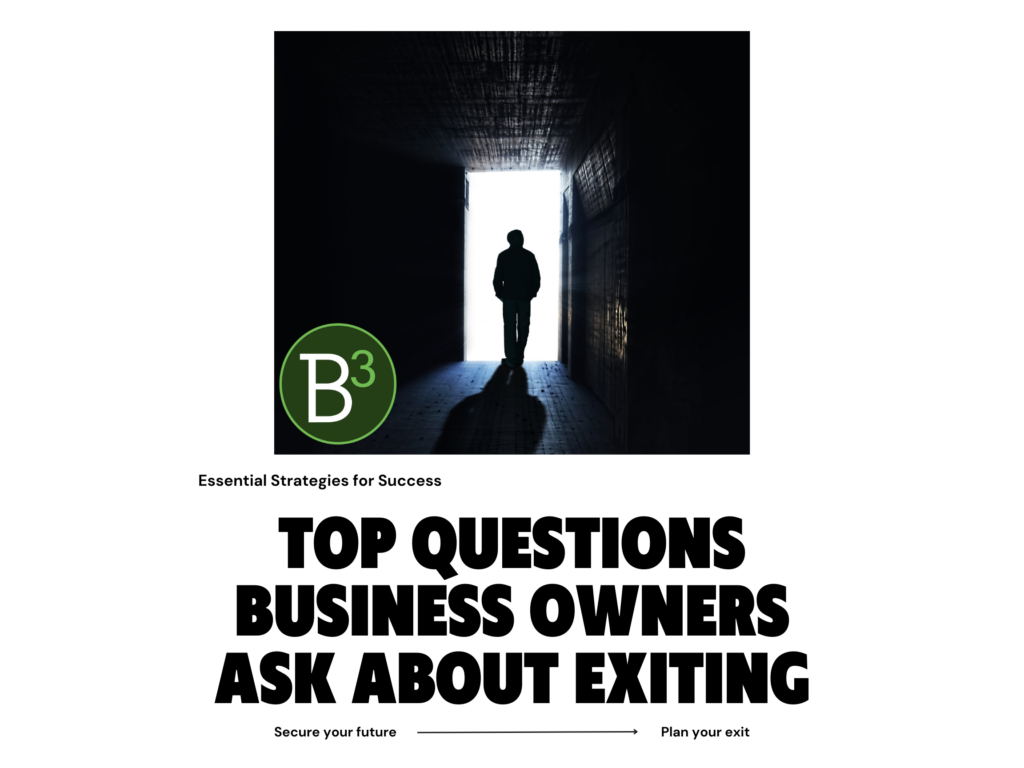
The Bottom Line
Whether you’re looking to retire, start a new venture, or just explore your options, 2025 could be your year. But like any important journey, you need the right guide.
Ready to explore your options? Let’s have a conversation about your business’s future. Contact B3 Brokers for a confidential discussion about your exit strategy.
Remember, selling your business might be a once-in-a-lifetime event – make it count.
[About the Author]
Dean Burnette is the Managing Business Broker at Best Business Brokers (B3), with extensive experience in business sales and acquisitions throughout the Southeast. His straight-talking approach and deep expertise have helped countless business owners achieve successful exits.
